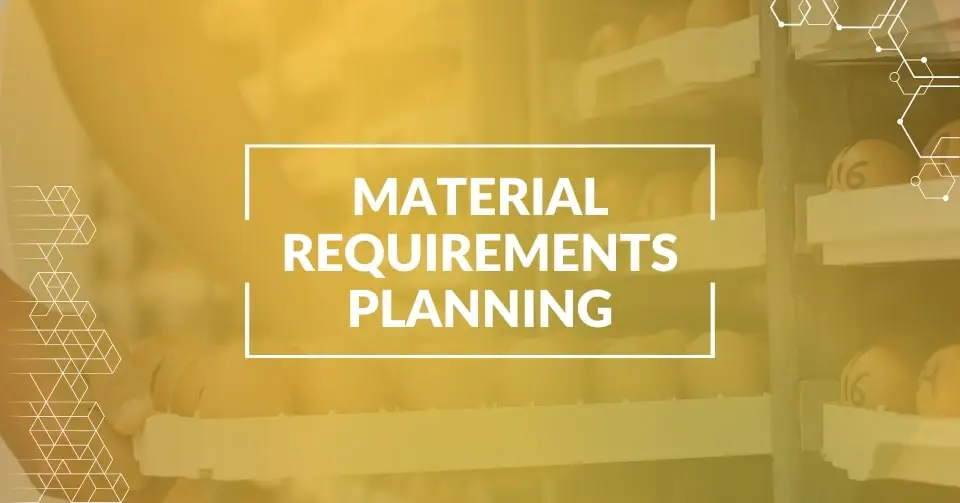MES is a digital solution that helps food and beverage companies streamline production, improve transparency, and make data-driven decisions. Its benefits are numerous, but is it simple to implement?
Knowing about potential hardships while implementing a manufacturing execution system will help you prepare better and overcome the obstacles. You will see what you are dealing with, and it will also help you avoid costly mistakes.
This blog will tell you more about the widespread MES implementation challenges and the ways to overcome them.
What Are the Challenges of MES Implementation?
To make the system work, you need to take many steps and overcome some obstacles. For instance, you may find it challenging to decide on a solution you need, spend time integrating MES with other programs, and adhere to compliance rules simultaneously. What can happen, and how to deal with it? To answer these questions, let’s discuss common MES implementation obstacles.
1. Choosing a Manufacturing Execution System
MES vendors offer various solutions, but choosing the right option for your type of business is vital. A wrong choice can result in extra financial expenses and additional work.
To overcome this challenge, food manufacturers must consider important factors like production size, financial aspects, technical questions, MES features etc. We also recommend reading app guides like our list of top MES software.
2. Integration With Other Systems
MES can be integrated with other manufacturing and business systems. However, it can be a challenge. Integrating MES with existing systems, such as ERP, can be difficult, as sometimes the platforms may be incompatible and cause issues, such as errors in data exchange.
To avoid this problem, you must examine the software infrastructure and develop an integration plan. You can also involve technical support. Consider choosing a solution with better integration capabilities.
Besides that, if you still feel like you lack an understanding of the difference between different systems, you can read our MES vs. MOM and ERP vs. MES blogs.
3. Technical Challenges in MES
MES implementation is a long and technically demanding process. It includes setting up technical infrastructure, such as servers, networks, devices, etc. Imagine how intricate the process can be when you need to implement a comprehensive system throughout the business to make it function properly and catch tiny details in real time.
To avoid costly mistakes, malfunctions, and delays, involve people with advanced MES implementation expertise.
4. Change Management Challenges in MES Implementation
Implementing a manufacturing execution system will transform your operations and processes.
You may even face resistance from workers who are used to established procedures. You must conduct process reorganization, align stakeholders, establish objectives, etc. It may take time, and failing to familiarize your company with the new system and rules can cause mistakes and delays.
Don’t underestimate the importance of change management in MES implementation. Incorporate it to ensure a smooth transition to the new environment and procedures.
Explain the benefits of MES, its importance, and how it can boost the workflow. Guarantee proper training, consider the employees’ workload and technical skills, encourage communication, gather feedback, and quickly respond to issues and questions.
5. Be Ready for MES Implementation Costs
Food manufacturing technologies, such as MES software solutions, can be costly. You must invest in the system, hardware, and expert support. In one of the MESA reports, costs and ROI justification were the number 1 obstacle to MES strategy success among manufacturers.
You must evaluate your finances and carefully allocate your budget to avoid extra expenses and even reduce MES implementation costs. Consider this as an investment. It will take time before you prove ROI.
6. Food Safety and Regulatory Compliance
We know how highly regulated the food industry is. In this case, we must ensure that MES complies with standards and that the system helps food manufacturers adhere to food safety and regulatory requirements.
Compliance with food safety standards is crucial from the very beginning of the MES implementation process. You can choose a solution that is tailored to the food industry.
Hiring a professional who will guide you through the process is also a good decision. A specialist will focus on industry-specific aspects and help you adjust your system accordingly.
Find the Best MES Solution for Food Manufacturing!
You already know that choosing the right MES is crucial, especially in the food and beverage industry, where compliance and safety are essential. FoodReady MES is a solution you won’t be disappointed with.
FoodReady offers a range of features for efficient production management, data collection, inventory control, maintenance management, and more. We are focused on ensuring food safety compliance along with productivity and profitability.
Our MES system will let you control production on the shop floor promptly and efficiently.
Apart from comprehensive MES features that will help you optimize your production, we can also provide professional support to help you overcome the challenges of MES implementation.
Not only do we assist you in implementing the system, but we also help you achieve your food safety goals.
Our customers, True Essence Foods, gave positive feedback about the software’s user-friendly mobile application and availability in Spanish! Moreover, they acknowledged our customer support, which made them “feel like a priority rather than an afterthought.” We love our clients and do the very best for them!
You can start using a MES solution without extra stress to revolutionize your food production. Book a demo to learn more about how to achieve that with FoodReady!
Key Takeaways
Knowing about the hardships you can encounter while implementing MES makes you more prepared for potential issues and helps you avoid them. Even though implementing the system brings many advantages, it’s still time-consuming and demanding.
You can face difficulties such as software selection, technical issues, change management and lack of productivity, implementation process crucial for the smooth workflow, adherence to regulatory requirements, and high costs.
However, these challenges can be tackled with proper planning, research, training, communication, analysis, etc. MES for food manufacturing is a long-term investment in food safety compliance, product quality, and business growth, and the challenges are worth dealing with if you know the purpose and have a goal.
At FoodReady, we can help you implement and run your manufacturing execution system to ensure efficient production and other benefits. Contact us to find out more!
FAQs
You can read more about this in our article about the benefits of using MES in food production.
Improper training, planning, communication, etc., can cause hardships and problems. Overcoming MES challenges is crucial to avoid potential failures.
The general MES implementation plan includes analysis and planning, building a team, training, technical work, integration, and post-implementation procedures. However, the actual plan is more profound and complex.
System implementation requires significant investment; however, as a result, you’ll reduce costs, improve efficiency, and optimize processes.
Additionally, MES drives data-driven decision-making, reduces waste, and more. MES’s benefits are worth the investment because they help grow profits and boost growth.
Continuous monitoring and improvement play a significant role in MES implementation and usage. To avoid further hardships and drawbacks, you should establish monitoring procedures, analyze feedback, and monitor the market and the company’s state. Don’t forget about regular improvements and updates to drive continuous improvement.








